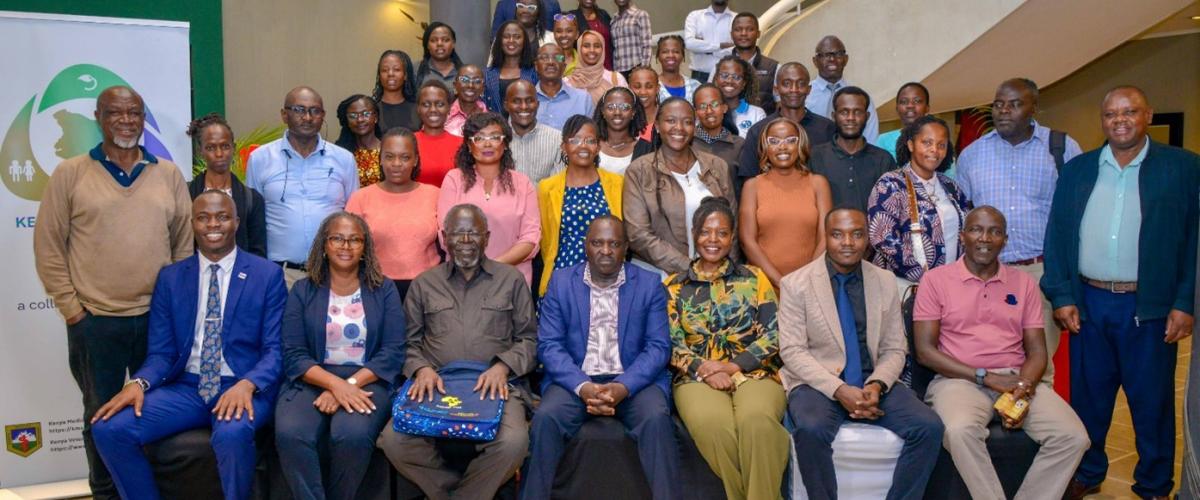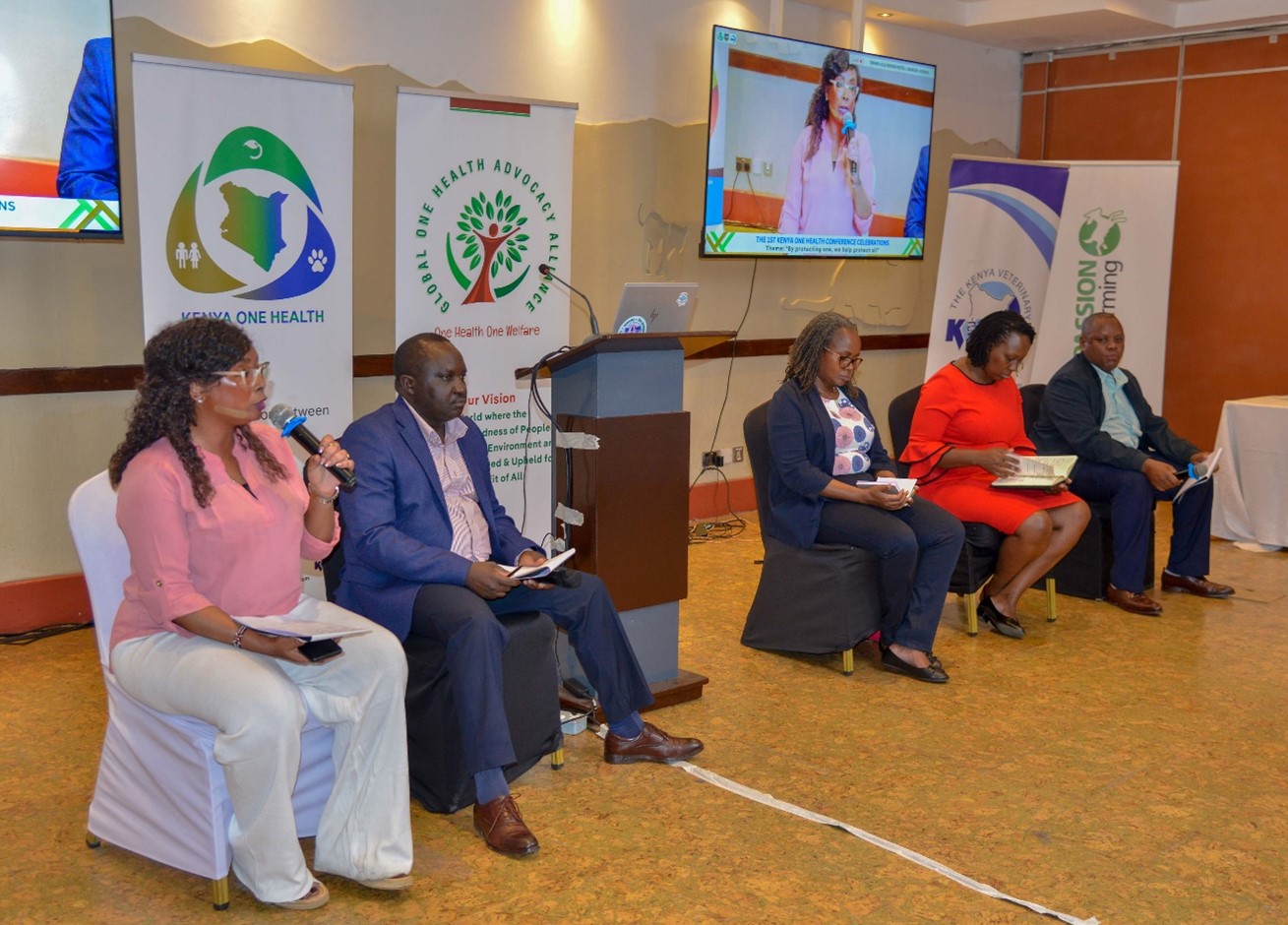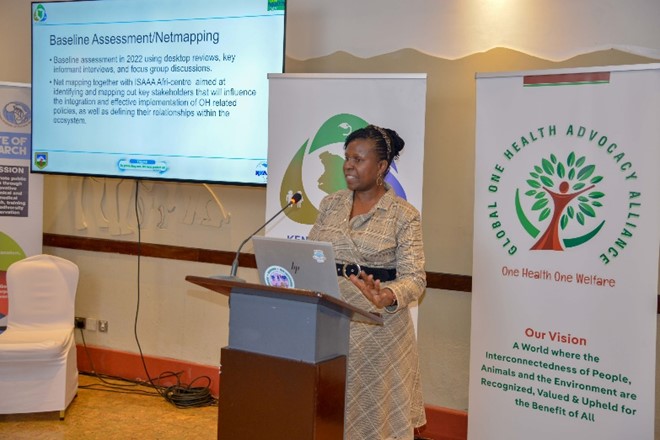
One Health stakeholders and partners in Kenya have highlighted the role of education and governance in identifying shared priorities and building systems that promote collaboration between the human, animal and environment sectors. This is a reflection of the growing recognition that health challenges including zoonotic diseases, antimicrobial resistance, and climate change require joint action across disciplines and stakeholders.
This was at the Kenya One Health conference held from 6-7th November 2025 in Nairobi, Kenya under the theme, ‘By protecting one, we help protect all”. The two-day event brought together health professionals, researchers, policymakers, and students to explore how Kenya can better prevent and manage OH threats between people, animals, and the environment. The conference coincided with the inaugural Kenya One Health Week held from 2–8 November 2025.
Simon Mucara Kigondu, president of the Kenya Medical Association highlighted the importance of collaboration across sectors, 'the challenges we face today don’t respect borders or species, so our solutions shouldn’t either', he said.

Over the two days, participants shared experiences and practices from across Kenya and the region from community-level work to national coordination and policy efforts. The sessions covered themes including zoonotic diseases and emerging health threats, antimicrobial resistance and stewardship, sustainable food systems and ecosystems, climate change and environmental health, risk communication, gender and community engagement, One Health policy and governance, and digital tools and innovation in diseases surveillance.
Kevin Osore, chairman Kenya veterinary association reiterated Kenya’s readiness to operationalize One Health “This conference is a demonstration that Kenya is ready to move forward from talking about One Health to putting it into practice,’ he said.
The Capacitating One Health in Eastern and Southern Africa (COHESA) project-team showcased their work on One Health in policy & governance- ‘Operationalizing One Health governance at the county level’, drawing insights from joint training conducted by the Zoonotic Diseases Unit (ZDU) and COHESA Kenya, where counties were guided on how to integrate One Health coordination into their local planning and budgeting systems. The training strengthened collaboration structures in several counties and led to the successful establishment of seven County One Health Units (COHUs)- county-level platforms bringing together human, animal, and environment health players to jointly plan, share data, and respond to outbreaks more effectively.
The Meru COHU where COHESA supported the Gender Responsive One Health (GROH) project implemented by Alinea International, a development consultancy firm and Farmers Helping Farmers. A One Health Social and Behavior Change Strategy has been adopted in Meru, helping the county to set an example in the advancement of One Health at the county level. This was supported by the GROH project and COHESA through the ZDU.
COHESA Kenya’s model for making One Health work showcased best practices and practical approaches used in the project to strengthen stakeholder engagement and advance the One Health agenda across different areas and levels in the country. The approach focuses on documenting what works, sharing evidence, and supporting government teams to apply these experiences in their own contexts (Opportunities, gaps and challenges in the Implementation of the One Health Approach in Kenya)
COHESA’s work in One Health education in Kenya was also presented and demonstrated how cross cutting competencies essential to One Health can be integrated through use of the Train the Trainer approach with schoolteachers used in Meru. (One Health Teacher training).
Finally, the work on net-mapping for integrating environmental stakeholders in Kenya was shared by ISAAA Africenter. This work strengthened structured data-sharing mechanisms and establishing an environment and ecosystem health coordination platform within ZDU at the Kenya public health institute, which works to enhance collaboration and align Kenya’s OH efforts with global network integration standards.


Salome Bukachi, COHESA Kenya country Lead, summarized their work, 'COHESA’s work builds countries’ capacities to see where connections exist and where they can be strengthened to make One Health collaboration more effective.' 'This work is crucial as Kenya faces complex health risks where people, livestock, and wildlife live closely together’, she added.
Over 70% of emerging infectious diseases in humans originate from animals, and factors such as climate change and antimicrobial resistance make these risks even harder to manage.
For COHESA, the event was an opportunity to link its regional experience with Kenya’s national efforts, build new partnerships, and learn from others working on similar challenges.
Joshua Onono, COHESA Kenya co-lead noted the importance of the conference, “The KOH conference showed what’s possible when people from different sectors come together with a shared purpose.”
The Kenya One Health conference was organized by the Kenya Medical Association (KMA) and the Kenya Veterinary Association (KVA).
More information on One Health in Kenya and the region
Building the future One Health workforce in Eastern and Southern Africa: Gaps and opportunities
One Health Observatory for news, training, and resources https://onehealthobservatory.org/